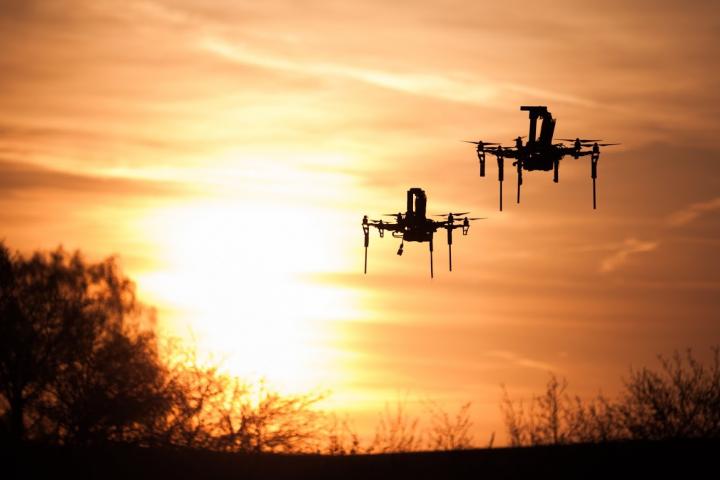
In March 2017, Dr. Martin Saska from the Faculty of Electrical Engineering, together with colleagues from the American University of Pennsylvania and the British University of Lincoln,gained a complete medal collection in the MBZIRC competition. Autonomous drones developed in the Group of Multirobotic Systems at FEE won that year with a huge margin in the discipline using several fully autonomous drones. Scientists are already preparing for another year of competition that will be held in 2020, setting themselves highest goals in the $ 1 million prize competition.
During these weeks, there is an experimental team in a camp near the town of Mirovice in South Bohemia, where the developed technology of autonomous drones is tested in real outdoor conditions. In addition to more than 30 scientists and students from CTU, the camp is also attended by scientists from the University of Pennsylvania and the University of New York and several other European institutions. The field robotics team is testing a system for quickly locating and extinguishing high-rise fires and building a group of cooperating drones and ground robots with manipulators. The third MBZIRC 2020 discipline is motivated by the role of autonomous trapping of unwanted drones moving in the forbidden area, with the CTU team having rich experience with the development of the Eagle.one drone hunter.
In the case of the MBZIRC 2020 competition, the collaborative drone system developed by team of Dr. Martin Saska from the Faculty of Electrical Engineering will be fully autonomous. The multi-engine drones start all by themselves, and only by pressing the start button, without any human intervention, they perform the task assigned to them and after completing the task land safely in a designated place.